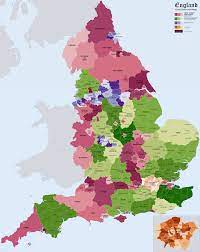The Role of Local Government in Society
Local government plays a crucial role in the functioning of society, serving as the primary level of administration that directly impacts the lives of citizens within a specific geographic area. From providing essential services to promoting community development, local governments are instrumental in ensuring the well-being and prosperity of their residents.
Service Provision
One of the key functions of local government is to deliver essential services to its constituents. This includes but is not limited to maintaining infrastructure such as roads, parks, and public facilities; managing waste disposal and recycling programmes; and providing public transportation options. By efficiently delivering these services, local authorities contribute to enhancing the quality of life for residents and fostering a sense of community pride.
Community Development
Local governments also play a vital role in promoting community development initiatives. This involves collaborating with local businesses, non-profit organisations, and residents to identify needs and opportunities for growth within the community. Through strategic planning and investment in areas such as education, healthcare, housing, and economic development, local authorities can help create vibrant and sustainable communities that attract both residents and businesses.
Democratic Representation
Another important aspect of local government is its role in democratic representation. Elected officials at the local level serve as representatives of their constituents, advocating for their interests and needs within the decision-making process. By engaging with residents through public consultations, town hall meetings, and other forums, local governments ensure that policies and initiatives align with the preferences of the community they serve.
Regulatory Functions
In addition to service provision and community development, local governments are responsible for enforcing regulations that maintain order and safety within their jurisdiction. This includes zoning laws that regulate land use, building codes that ensure structural integrity, environmental regulations that protect natural resources, and licensing requirements for businesses operating within the area. By upholding these regulations, local authorities uphold standards that promote public health and safety.
Conclusion
In conclusion, local government plays a multifaceted role in society by providing essential services, promoting community development, representing citizens’ interests democratically, and enforcing regulations for public welfare. Through effective governance and collaboration with stakeholders, local authorities contribute significantly to creating thriving communities where residents can live fulfilling lives. The importance of strong and responsive local government cannot be overstated in building resilient societies that meet the diverse needs of their populations.
Engage with Local Government: Six Essential Tips for Active Participation
- Stay informed about local government news and updates.
- Attend council meetings to understand how decisions are made.
- Get involved in community consultations and provide feedback on local issues.
- Support local initiatives and projects that benefit the community.
- Vote in local elections to have a say in who represents you.
- Contact your local councillors or representatives to raise concerns or share ideas.
Stay informed about local government news and updates.
Staying informed about local government news and updates is essential for actively participating in the civic life of your community. By keeping abreast of developments such as new policies, upcoming projects, and public consultations, residents can stay engaged and make informed decisions about issues that directly impact their daily lives. Whether through local newspapers, official websites, or community meetings, staying informed empowers individuals to voice their opinions, contribute to discussions, and hold local officials accountable for their actions. In a rapidly changing world, staying connected to local government news ensures that residents can play a proactive role in shaping the future of their neighbourhoods and fostering a sense of civic responsibility among fellow community members.
Attend council meetings to understand how decisions are made.
Attending council meetings is a valuable tip for gaining insight into the decision-making processes of local government. By participating in these meetings, residents can observe firsthand how policies are formulated, debated, and implemented. This experience not only provides a deeper understanding of the issues facing the community but also allows individuals to engage directly with elected officials and contribute to the democratic process. By being informed and actively involved in council meetings, residents can play a proactive role in shaping the future direction of their local government and ensuring that decisions align with the needs and priorities of the community.
Get involved in community consultations and provide feedback on local issues.
Getting involved in community consultations and offering feedback on local issues is a valuable way to actively participate in the decision-making processes of local government. By engaging in these consultations, residents have the opportunity to voice their opinions, concerns, and suggestions on matters that directly impact their communities. This feedback not only helps local authorities make informed decisions but also fosters a sense of civic responsibility and ownership among residents towards shaping the future development of their neighbourhoods. Active participation in community consultations can lead to more inclusive and responsive governance, ultimately contributing to the overall well-being and prosperity of the local area.
Support local initiatives and projects that benefit the community.
Supporting local initiatives and projects that benefit the community is a fundamental tip for fostering growth and cohesion within a locality. By backing initiatives such as community events, environmental conservation projects, educational programmes, or small business support schemes, local government can empower residents to actively participate in shaping their community’s future. This support not only enhances the quality of life for individuals but also strengthens the social fabric and sense of belonging within the community. Encouraging and investing in local initiatives demonstrates a commitment to grassroots development and showcases the value of collaboration in creating a thriving and harmonious society.
Vote in local elections to have a say in who represents you.
Voting in local elections is a fundamental way to have a voice in determining who represents you at the grassroots level of government. By participating in local elections, you can actively shape the future of your community by selecting candidates who align with your values and priorities. Your vote not only empowers you to influence decisions that directly impact your daily life but also contributes to the democratic process by ensuring that diverse voices are represented in local government. Make your voice heard and exercise your right to vote in local elections to play a crucial role in shaping the direction of your community.
Contact your local councillors or representatives to raise concerns or share ideas.
To actively engage with your local government, it is advisable to reach out to your local councillors or representatives to address any concerns you may have or share innovative ideas for community development. By establishing direct communication channels with these elected officials, you can effectively voice your opinions on local issues and contribute to the decision-making process. Building a constructive dialogue with your councillors not only ensures that your views are heard but also fosters a sense of civic participation and empowerment within the community.


